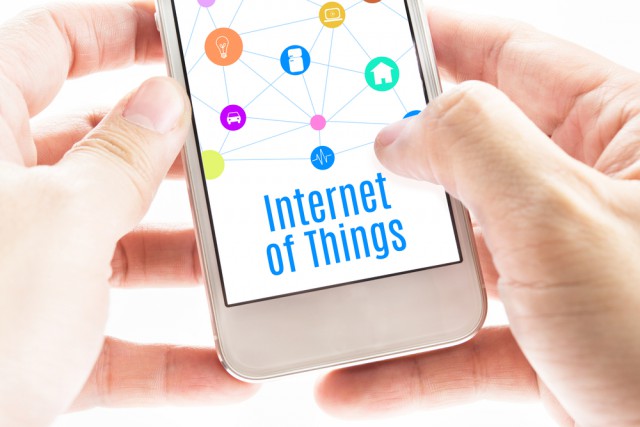The three secrets to successfully monetizing IoT data

The global business landscape is being transformed by the Internet of Things. Soon, every business will be an IoT business simply because those that don’t adapt, innovate, and transform their models will risk falling behind in the Connected Economy. But even as business leaders scramble headlong to get in on the IoT gold rush, many are faced with the same harsh realization: that actually monetizing IoT data is difficult.
I’ve written about the challenges of IoT monetization before, and I agree with Gartner’s assessment that 80 percent of IoT implementations will squander their transformational opportunities. This statistic isn’t due to a lack of opportunity, as I believe that for any company that has customers, suppliers, employees or assets, IoT monetization can be transformational. Here are my top three strategies for ensuring that your IoT initiative is part of the 20 percent that actually succeed.
- Focus on Business Objectives, Not Technology Implementations
If I had to name the top reason that IoT initiatives fail, it’s that business leaders are so enamored with the possibilities of IoT that they invest too heavily in technology infrastructure before they have a crystal clear plan for how these investments will generate ROI or achieve a strategic business goal. This leaves you with expensive technology investments that are looking for problems, rather than solving them.
Launching IoT initiatives should be a strategic conversation that starts at the board level. The question that business leaders need to ask isn’t, how can we add an IoT element into our existing business model to stay relevant? Rather, they should be considering, what will happen to our company if we don’t transform our business model to stand ahead of the competition in the Connected Economy?
Here’s an example of the problem: Telematics have the potential to completely transform the insurance industry. But right now, most insurance companies are focused on investing in IoT “plumbing,” rather than making sure the data these devices generate is being put to work making real business impacts.
This emphasis on “plumbing first” at the expense of focusing on concrete business objectives and strategies to monetize the data these devices create is both shortsighted and costly. Business challenges are more difficult to solve than technological ones, and as connected devices proliferate and become ubiquitous simply having an element of your business model based on IoT technology will no longer be a competitive differentiator. To stay ahead of the curve, businesses in every industry need to start seriously thinking about how they can transform themselves and roll out entirely new service offerings based on the data these devices generate.
- Develop A Strategy to Monetize Data, Not Just Devices
Thriving in the Connected Economy requires finding creative ways to monetize IoT data by harnessing it to enhance performance and create new business value. Yet despite the flood of interest and investment in IoT, very few businesses have successfully implemented plans to turn the actual data being generated by our connected devices into revenue.
The concept of treating and deploying data as a monetizable asset is still in the early adoption phase, and most organizations are poorly equipped when it comes to the knowledge and experience they’ll need to capitalize on monetizing their information. In short, the vast majority of the data being generated by connected devices remains undervalued and unmonetized. If you need proof just look to Capgemini Consulting, who found that while 96 percent of senior business leaders plan to leverage IoT in some way within the next three years, less than 30 percent of their organizations have been able to generate service revenues from their IoT solutions.
There are, of course, exceptionally innovative companies that provide great examples of success. The proliferation of connected cars has allowed automakers like Audi, Lexus, Ford and others to offer subscription-based service offerings that enhance the driver’s experience and generate significant recurring revenue long after initial purchase. In fact, SNS Research estimates that connected car services will be a $40B market by 2020. Similarly, GE Aviation has leveraged the data that their aviation devices generate to offer services to new customers outside of their normal customer base of airframe manufacturers. By harnessing the data generated by their engines installed in airliners, GE is able to offer airlines ‘data products’ that can optimize performance, reduce fuel consumption and operating costs, and even improve flight procedures. As a result of these services, AirAsia alone is targeting operational savings of $30-50M over a five-year period.
These are excellent examples of how strategic planning for IoT data monetization can unlock long-term value for the innovative companies that are willing to think creatively about and invest wisely in IoT. However, successes like these don’t happen overnight, or by accident. They are a result of not only the having the right strategic mindset, but also the right people in place to execute on these plans.
- Success Requires the Right Team
IoT data monetization is a complex business problem, and in an early adopter, fast-developing marketplace there is simply no one-size-fits-all solution. It’s not enough for an organization to merely add IoT monetization as an additional priority to their existing product team, nor is it possible to outsource these initiatives. As IoT data increasingly becomes a commercialized and monetized business asset, organizations need to create dedicated teams that are solely focused on getting these initiatives to market quickly, extracting key learnings, and optimizing them to deliver maximum impact and value.
While it is imperative that IoT transformations begin with strategic objectives lead by the business team, their execution should be left to operational executives that live and breathe data. This means moving these initiatives under the CIO or CDO, leaders who have the experience and authority required to reorient your corporate culture to treating IoT data as a strategic asset as well as the ability to determine how best to leverage these assets to achieve the desired strategic business objective(s).
By placing IoT monetization under an experienced data executive and arming that person with clear strategic business objectives and organizational support, you empower your company with the tools, talent, and mindset required to define and execute on a successful IoT monetization strategy.
Photo Credit: weedezign/Shutterstock
 Roman Stanek is a passionate entrepreneur and industry thought leader with over 20 years of high-tech experience. His latest venture, GoodData, was founded in 2007 with the mission to disrupt the business intelligence space and monetize big data. Prior to GoodData, Roman was Founder and CEO of NetBeans, the leading Java development environment (acquired by Sun Microsystems in 1999) and Systinet, a leading SOA governance platform (acquired by Mercury Interactive, later Hewlett Packard, in 2006).
Roman Stanek is a passionate entrepreneur and industry thought leader with over 20 years of high-tech experience. His latest venture, GoodData, was founded in 2007 with the mission to disrupt the business intelligence space and monetize big data. Prior to GoodData, Roman was Founder and CEO of NetBeans, the leading Java development environment (acquired by Sun Microsystems in 1999) and Systinet, a leading SOA governance platform (acquired by Mercury Interactive, later Hewlett Packard, in 2006).
